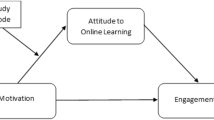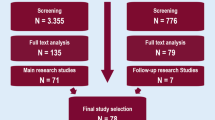Abstract
Service learning has been utilized as an effective type of pedagogy, and students involved in service learning projects gain real-world experiences outside the classroom. Research suggests that intergenerational service learning projects are becoming increasingly common and such projects are likely to enhance the quality of both academic and civic outcomes for students. There is, however, relatively little research on the learning outcomes of event management students involved with physically active older adults. This study investigated the learning outcomes of undergraduate students who facilitated a sporting event for older adults. Students participated in structured service learning opportunities at the Indiana Senior Games, a multi-sport event for those aged 50 and older. Three investigators independently used content analysis methodology to analyze 142 student reflection papers. It was found that the students developed relationships with older adults, were less likely to negatively stereotype older adults, and realized the importance of maintaining an active lifestyle when they grow old. Service learning opportunities with older adults are a promising practice for undergraduate students, as self-esteem and a sense of social responsibility may be affected.
Similar content being viewed by others
References
Ames, B. D., & Youatt, J. P. (1994). Intergenerational education and service programming: A model for selection and evaluation of activities. Educational Gerontology, 20(8), 755–764. doi:10.1080/0360127940200803.
Baker, J., Horton, S., & Weir, P. (2010). The masters athlete: Understanding the role of sport and exercise in optimizing aging. New York: Routledge.
Bennett, G., Drane, D., & Henson, R. (2003). Student experiences with service-learning in sport management. Journal of Experiential Education, 26(2), 61–69.
Blieszner, R., & Artale, L. M. (2001). Benefits of intergenerational service-learning to human services majors. Educational Gerontology, 27, 71–87. doi:10.1080/036012701750069058.
Bringle, R. G., & Hatcher, J. A. (1996). Implementing service learning in higher education. Journal of Higher Education, 67(2), 67–73.
Bringle, R. G., & Kremer, J. F. (1993). Evaluation of an intergenerational service-learning project for undergraduates. Educational Gerontology, 19(5), 407–416.
Broomall, J. K. (1992). Intergenerational synergy. In R. B. Fischer, M. L. Blazey, & H. T. Lipman (Eds.), Students of the third age. New York: Macmillan Publishing Co.
Brown, C. A., McGuire, F. A., & Voelkl, J. (2008). The link between successful aging and serious leisure. International Journal of Aging and Human Development, 66(1), 73–95.
Brown, L. H., & Roodin, P. A. (2001). Service-learning in gerontology: An out-of-classroom experience. Educational Gerontology, 27, 89–103.
Campus Compact. (2012). Statistics. Retrieved October 15, 2012 from http://www.compact.org/about/statistics/.
Cardenas, D., Henderson, K. A., & Wilson, B. (2009). Experiences of participation in senior games among older adults. Journal of Leisure Research, 41(1), 41–56.
Chapman, N. J., & Neal, M. B. (1990). The effects of intergenerational experiences on adolescents and older adults. The Gerontologist, 30, 825–832.
Dellmann-Jenkin, M. (1997). A senior-centered model of intergenerational programming with young children. Journal of Applied Gerontology, 16(4), 495–506. doi:10.1177/073346489701600407.
Doll, G. A. (2006). Enhancing gerontology education: The role of older adult auditors in a human development and aging course. Journal of Intergenerational Relationships, 4(3), 63–72. doi:10.1300/J194v04n03_05.
Dorfman, L. T., Murty, S. A., Ingram, J. G., Evans, R. J., & Power, J. R. (2004). Intergenerational service-learning in five cohorts of students: Is attitude change robust? Educational Gerontology, 30, 39–55.
Furco, A. (1996). Service-learning: A balanced approach to experiential education. In Cooperation for National Services, Expanding Boundaries: Serving and Learning (pp. 2–6). Columbia, MD: Learn and Serve America.
Granville, G., & Ellis, S. (1999). Developing theory into practice: Researching intergenerational exchange. Education and Ageing, 14(3), 231–248.
Heo, J., Culp, B., Yamada, N., & Won, Y. (2013). Promoting successful aging through competitive sports participation: Insights from older adults. Qualitative Health Research, 23(1), 105–113.
Hsieh, H. F., & Shannon, S. E. (2005). Three approaches to qualitative content analysis. Qualitative Health Research, 15(9), 1277–1288.
Kapborg, I., & Berterö, (2003). The phenomenon of caring from the novice student nurse’s perspective: A qualitative content analysis. International Nursing Review, 50, 183–192. doi:10.1046/j.1466-7657.2003.00196.x.
Kaplan, M. S. (2002). Intergenerational programs in schools: Considerations of form and function. International Review of Education, 48(5), 305–334.
Kuh, G. D. (2008). High-impact educational practices: What they are, who has access to them, and why they matter. Washington, DC: AAC&U.
MacCallum, J., Palmer, D., Wright, P., Cumming-Potvin, W., Brooker, M., & Tero, C. (2010). Australian perspectives: Community building through intergenerational exchange programs. Journal of Intergenerational Relationships, 8(2), 113–127. doi:10.1080/15350771003741899.
McIntosh, C. (2002). Editorial. International Review of Education, 48(5), 301–303.
Mooney, L. A., & Edwards, B. (2001). Experiential learning in sociology: Service learning and other community-based learning initiatives. Teaching Sociology, 29, 181–194.
National Institute of Health. (2012). NIH Senior health. Retrieved October 18, 2012 from http://nihseniorhealth.gov/exerciseforolderadults/toc.html.
National Senior Games Association. (2012). About NSGA. Retrieved September 20, 2012 from http://www.nsga.com/about-nsga/who-we-are.
Nelson Laird, T. F., Engberg, M. E., & Hurtado, S. (2005). Modeling accentuation effects: Enrolling in a diversity course and the importance of social action engagement. Journal of Higher Education, 76(4), 448–476. doi:10.1353/jhe2005.0028.
Overton, R. F., & Malinauskas, B. M. (2007). College sport management student perceptions regarding special Olympics curriculum and service learning. The Sport Journal, 10(3). unpaginated
Pascarella, E., Edison, M., Hagedorn, L., Nora, A., & Terenzini, P. (1996). Influences on students’ openness to diversity and challenge in the first year of college. Journal of Higher Education, 67(2), 174–195. doi:10.2307/2943979.
Pettigrew, T. F. (1998). Intergroup contact theory. Annual Review of Psychology, 49, 65–85.
Pillemer, K., & Schultz, L. (2002). Evaluation of student assisted independent living (SAIL) Service learning project. In S. B. Seperson & C. Hegeman (Eds.), Elder care and service learning: A handbook (pp. 252–259). Westport, CT: Auburn House.
Roschelle, A. R., Turpin, J., & Elias, R. (2000). Who learns from service learning. American behavioral scientist, 43(5), 839–847. doi:10.1177/00027640021955630.
Shumer, R., & Belbas, B. (1996). What we know about service learning. Education and Urban Society, 28(2), 208–223. doi:10.1177/0013124596028002006.
Silverstein, M., & Parker, M. (2002). Leisure activities and quality of life among the oldest older in Sweden. Research on Aging, 24(5), 528–547. doi:10.1177/0164027502245003.
Stevens, C. A. (2008). Service learning for health, physical education, and recreation: A step-by-step guide. Champaign, IL: Human Kinetics.
Strage, A. (2004). Long-term academic benefits of service-learning: When and where do they manifest themselves? College Student Journal, 38(2), 257–262.
Titscher, S., Meyer, M., Wodak, R., & Vetter, E. (2000). Methods of text and discourse analysis. London: Sage.
Tucker, M. L., McCarthy, A. M., Hoxmeier, J. A., & Lenk, M. M. (1998). Community service learning increases communication skills across the business curriculum. Business Communication Quarterly, 61(2), 88–99.
U.S. Administration on Aging. (2012). A profile of older Americans: 2011. Retrieved October 18, 2012 from http://www.aoa.gov/AoARoot/Aging_Statistics/Profile/2011/2.aspx.
Zucchero, R. A. (2010). Share your experience and I’ll lend you my ear: Older adult outcomes of an intergenerational service-learning experience. Gerontology & Geriatrics Education, 31(4), 383–402. doi:10.1080/02701960.2010.528275.
Author information
Authors and Affiliations
Corresponding author
Rights and permissions
About this article
Cite this article
Heo, J., King, C., Lee, Jw. et al. Learning from Healthy Older Adults: An Analysis of Undergraduate Students’ Reflective Essays. Asia-Pacific Edu Res 23, 537–545 (2014). https://doi.org/10.1007/s40299-013-0128-3
Published:
Issue Date:
DOI: https://doi.org/10.1007/s40299-013-0128-3




